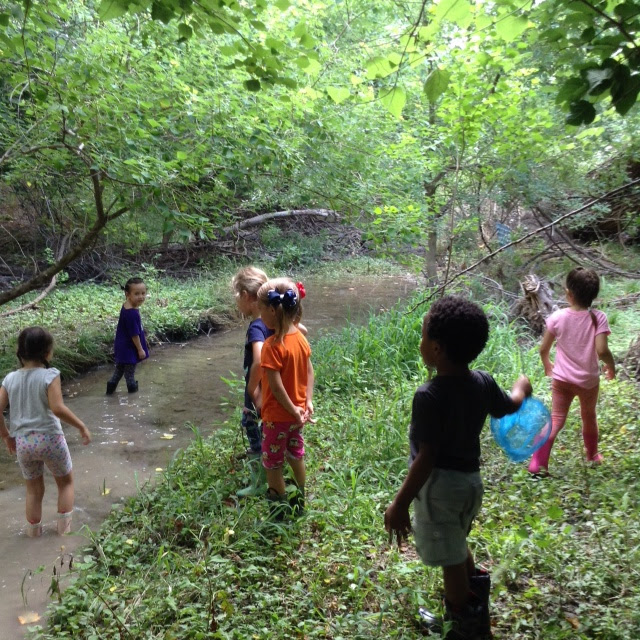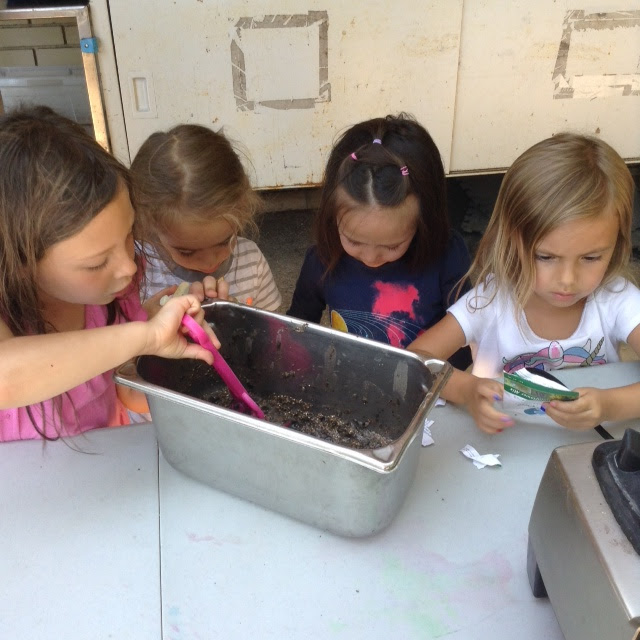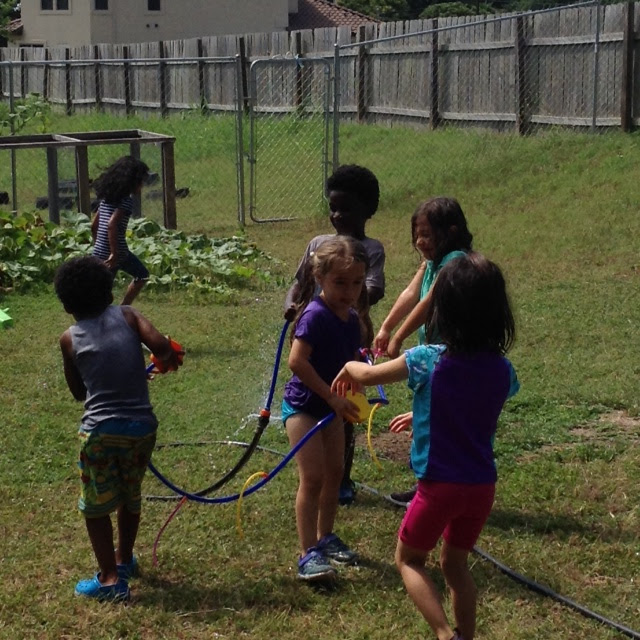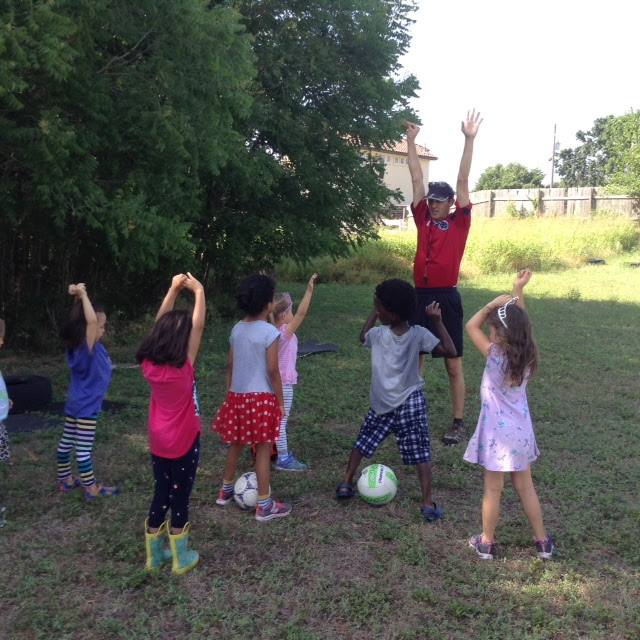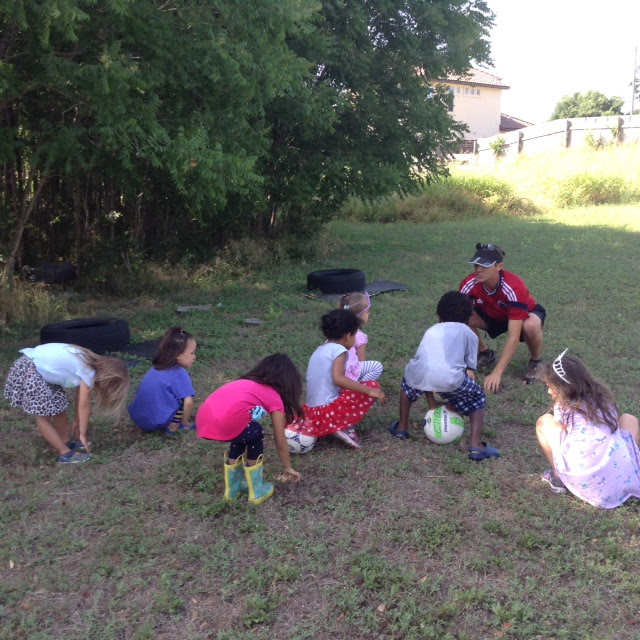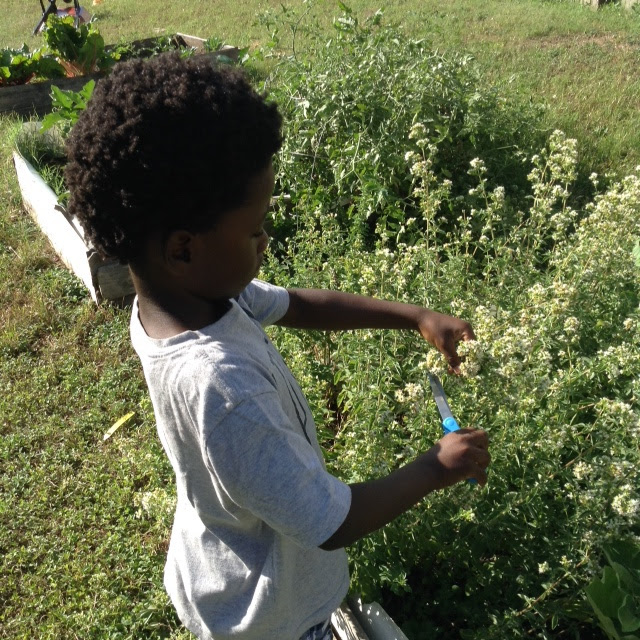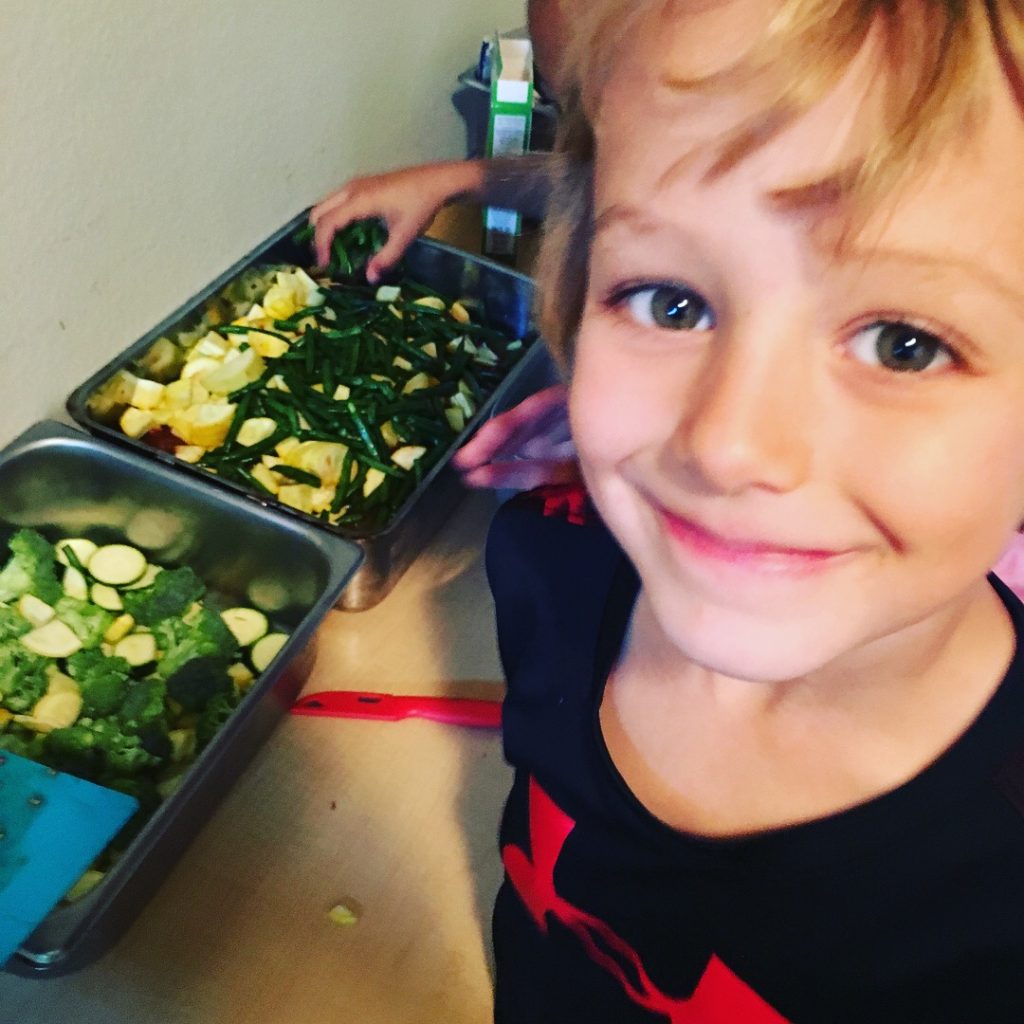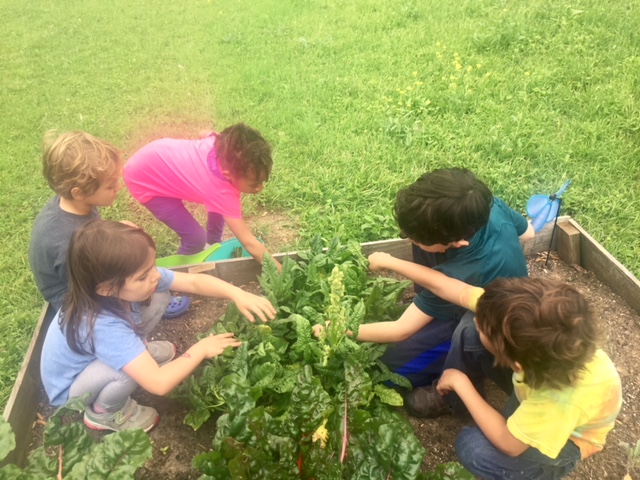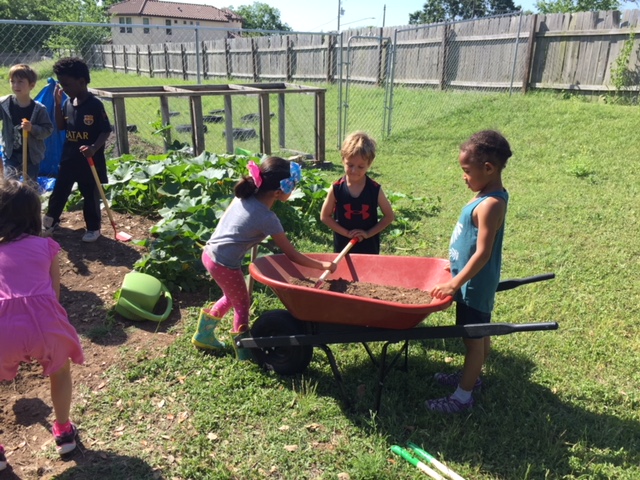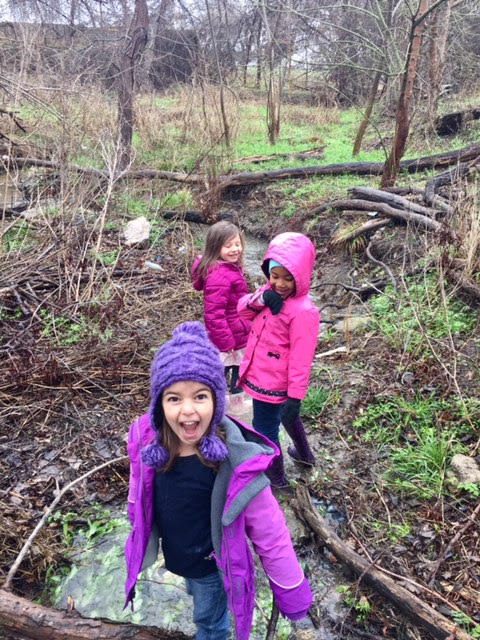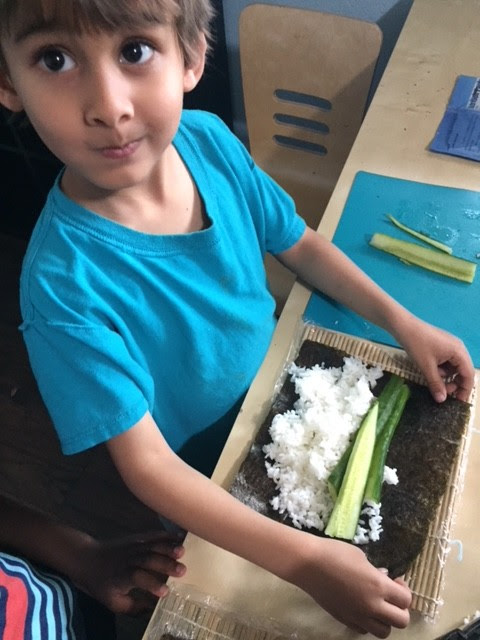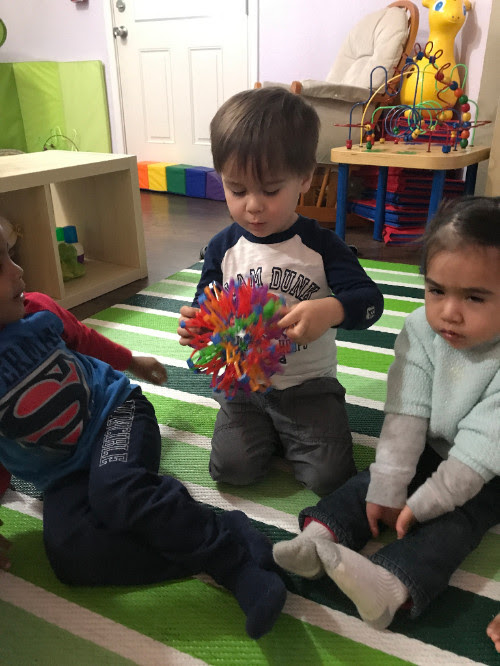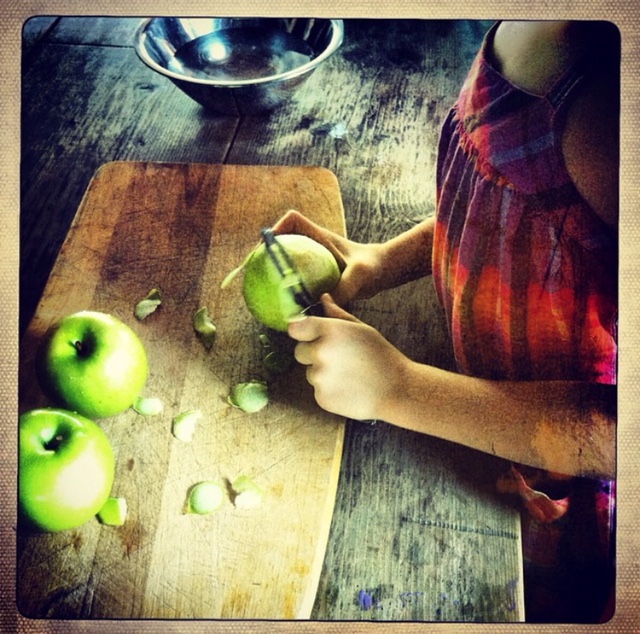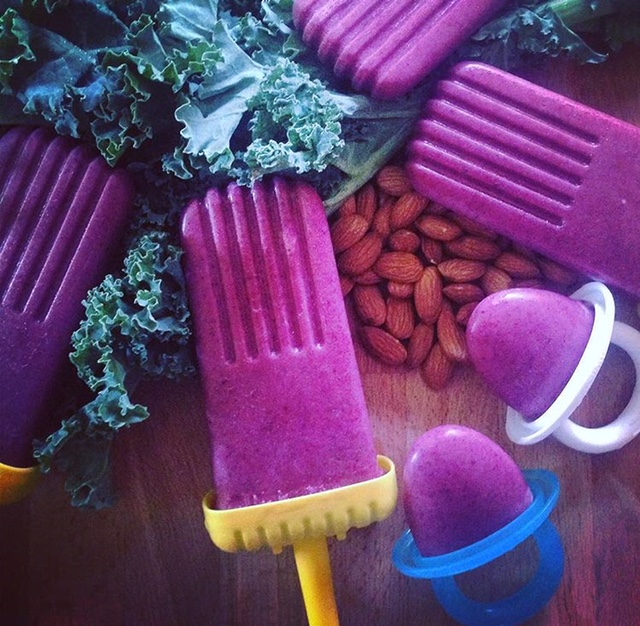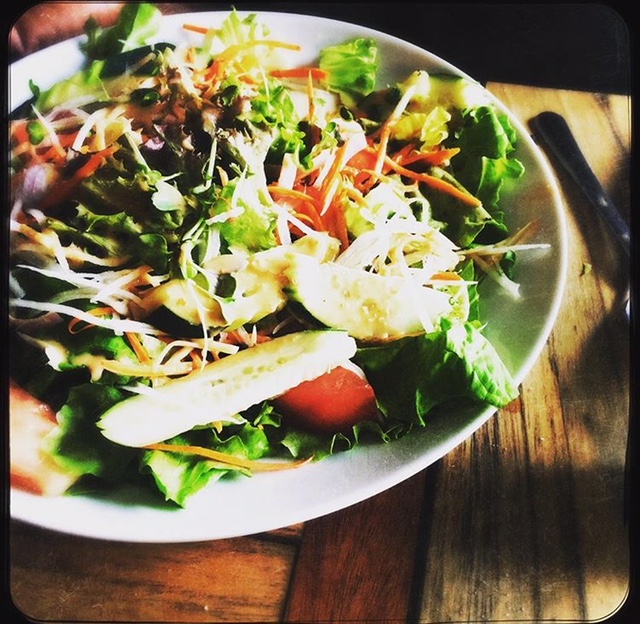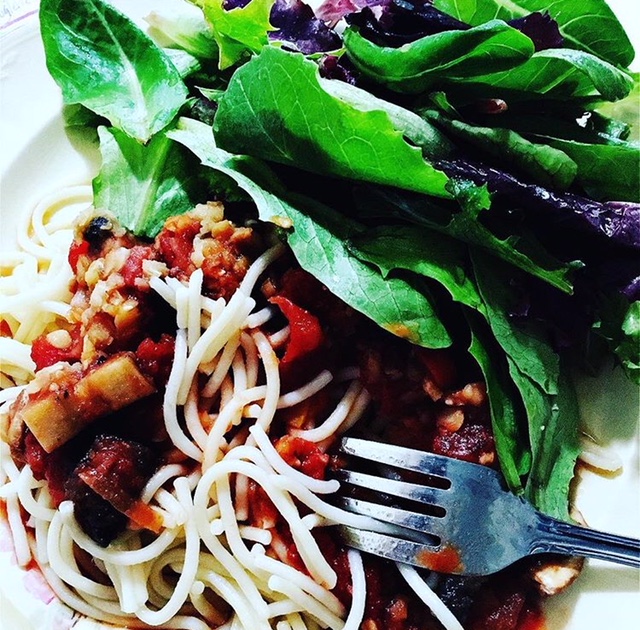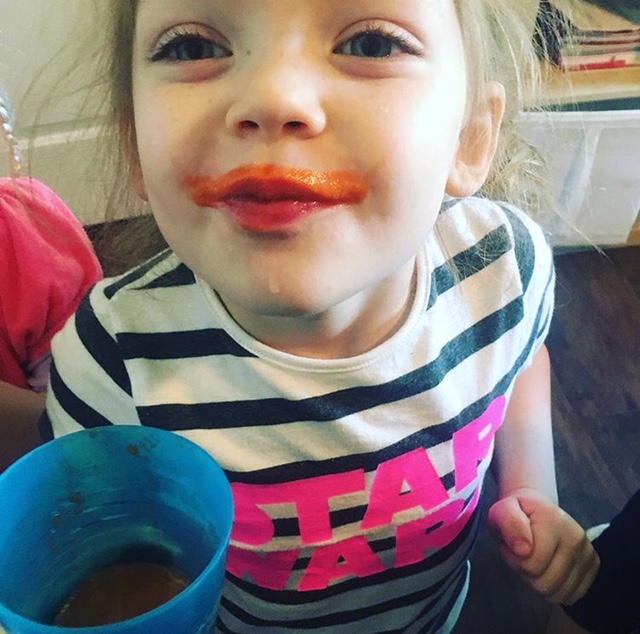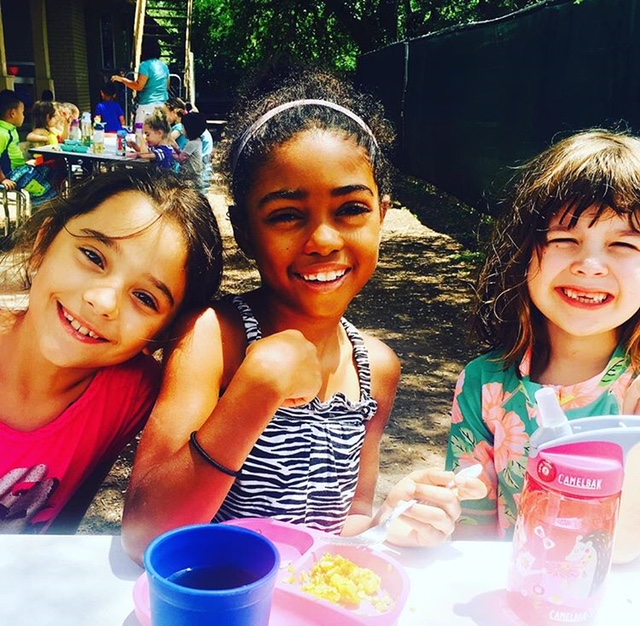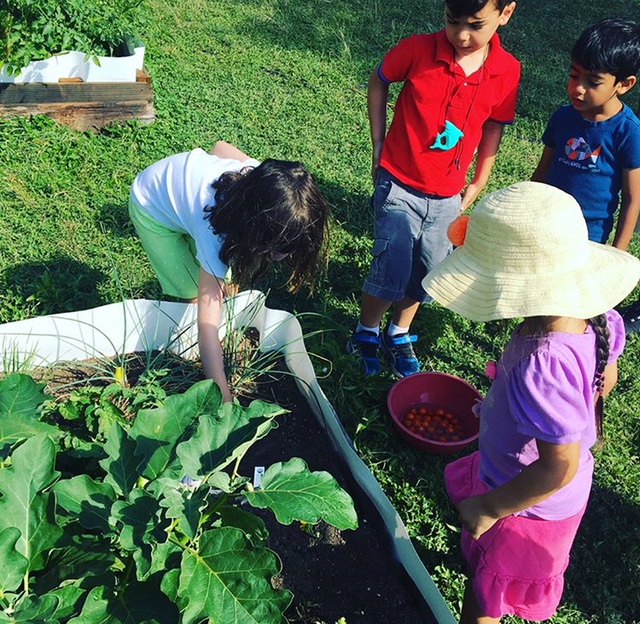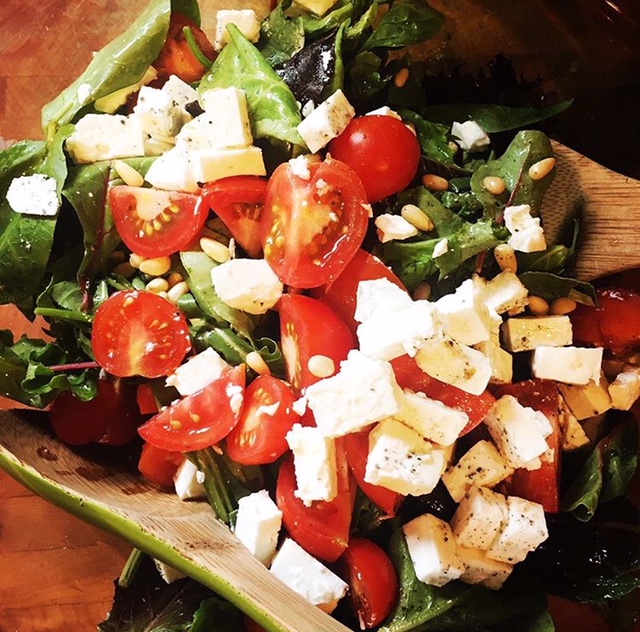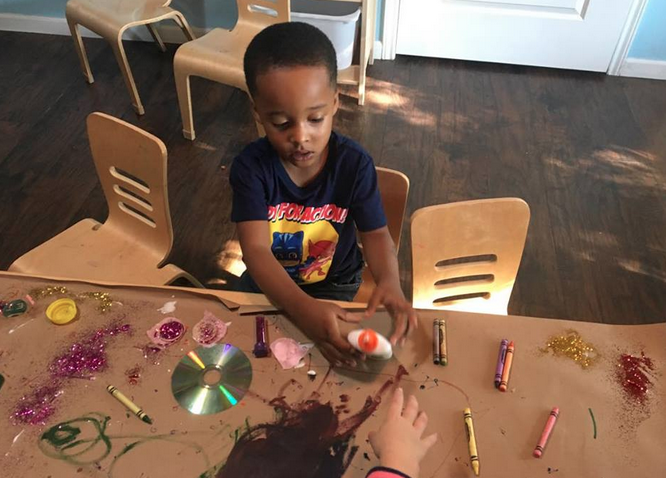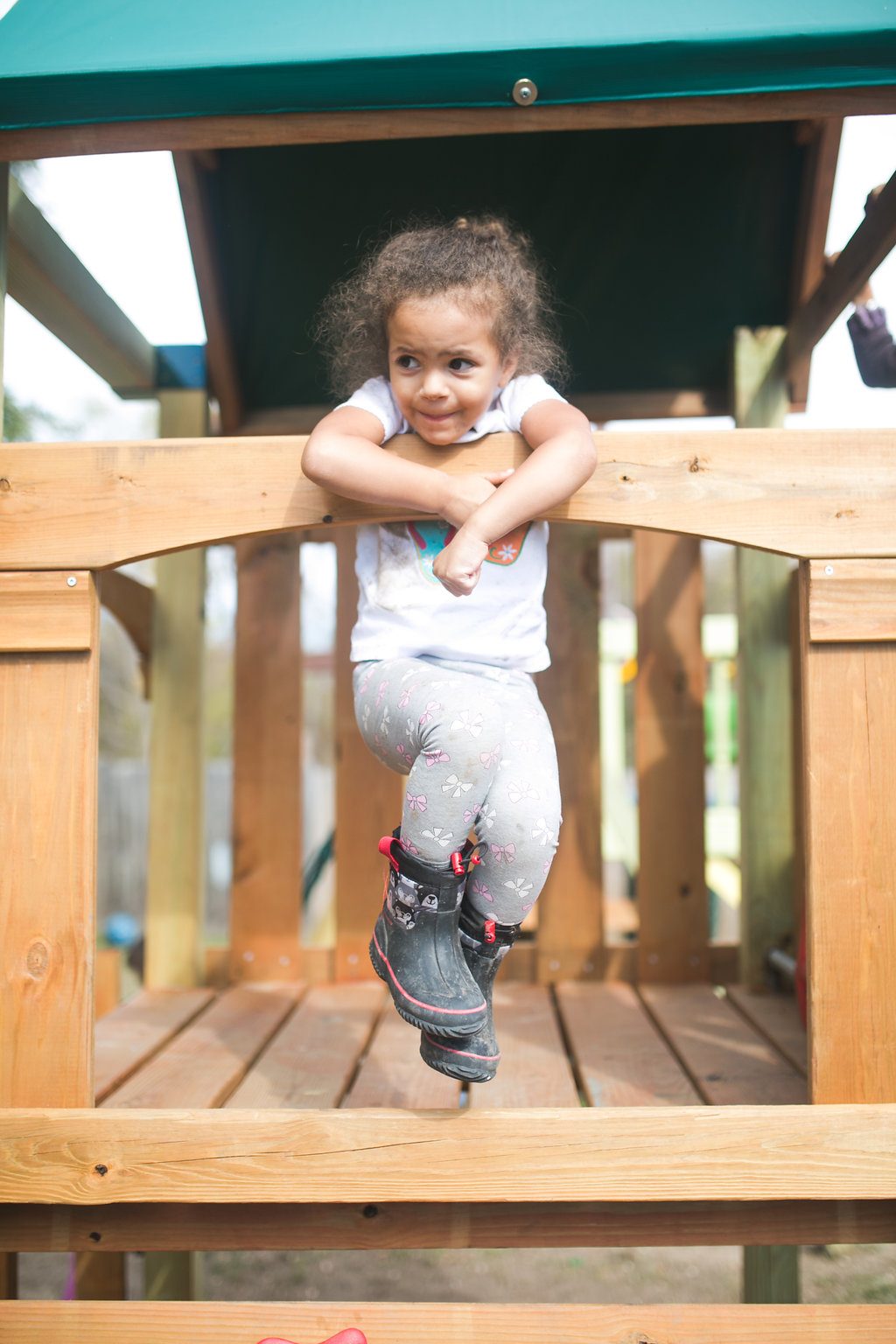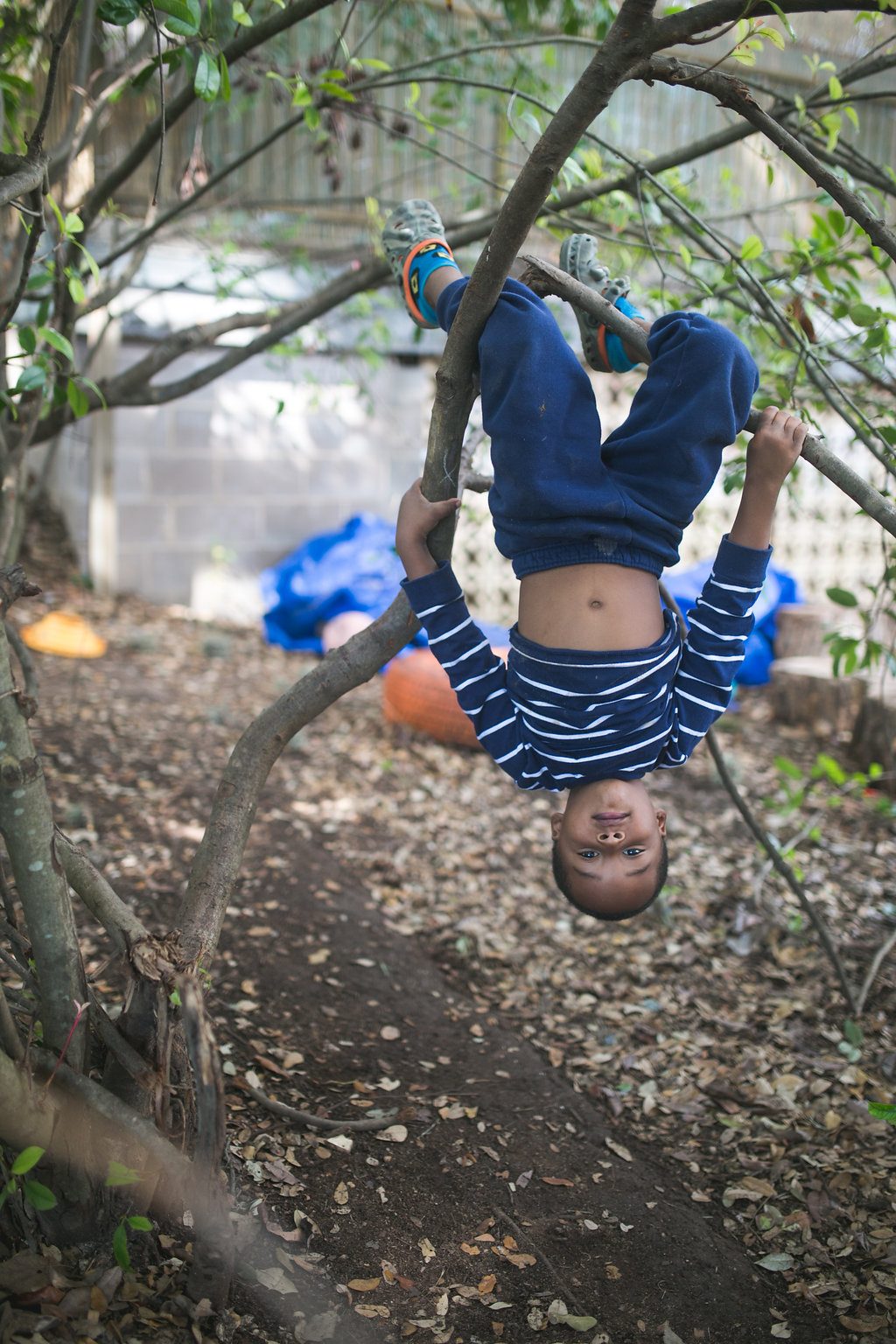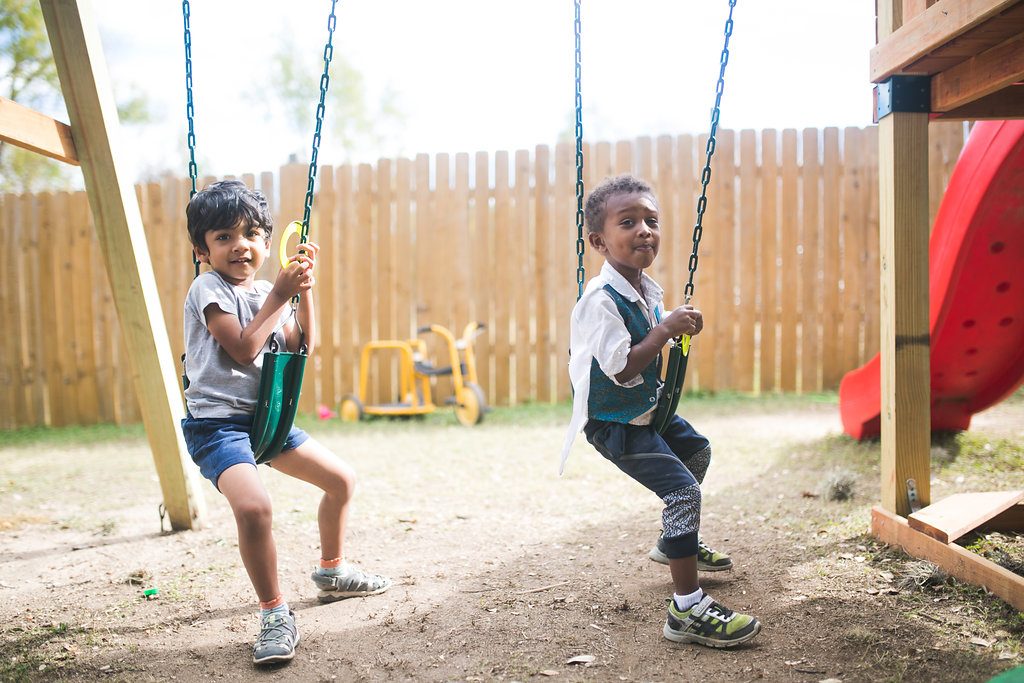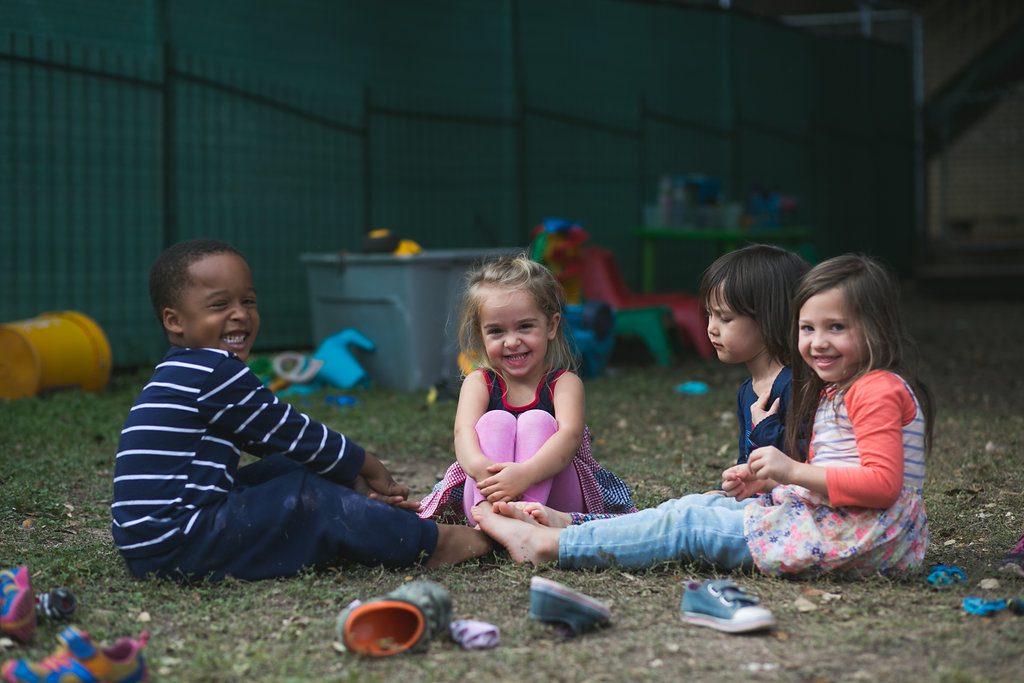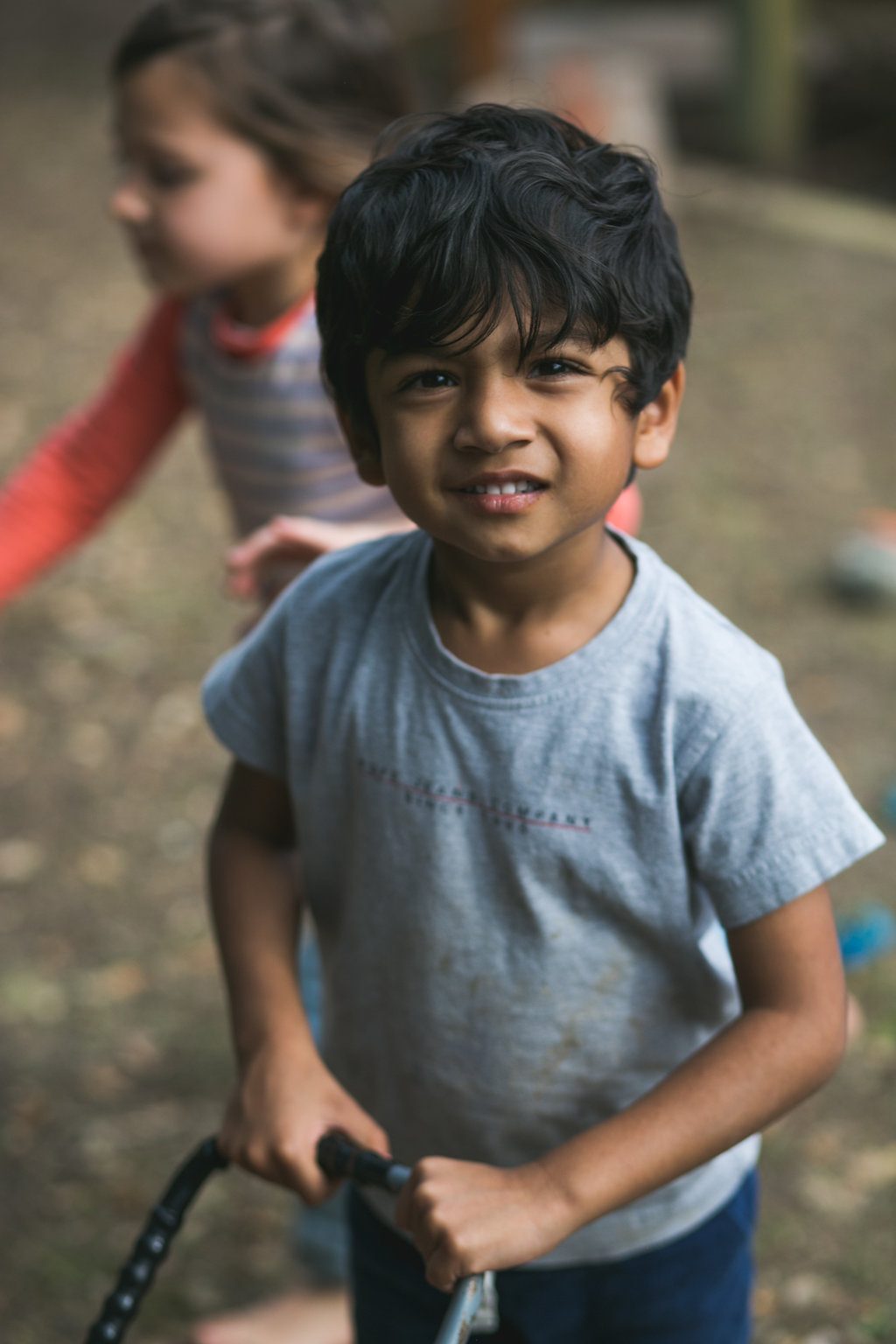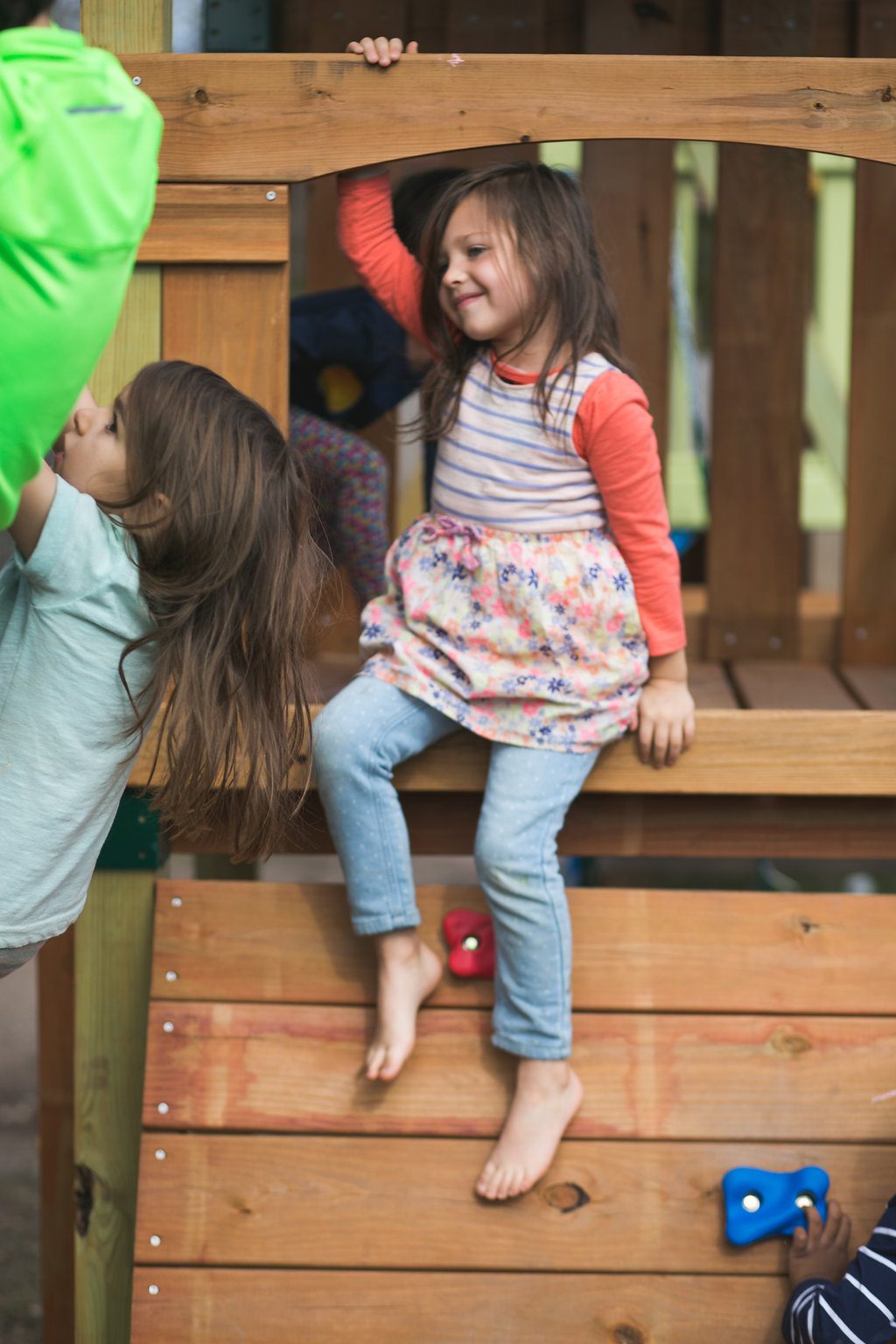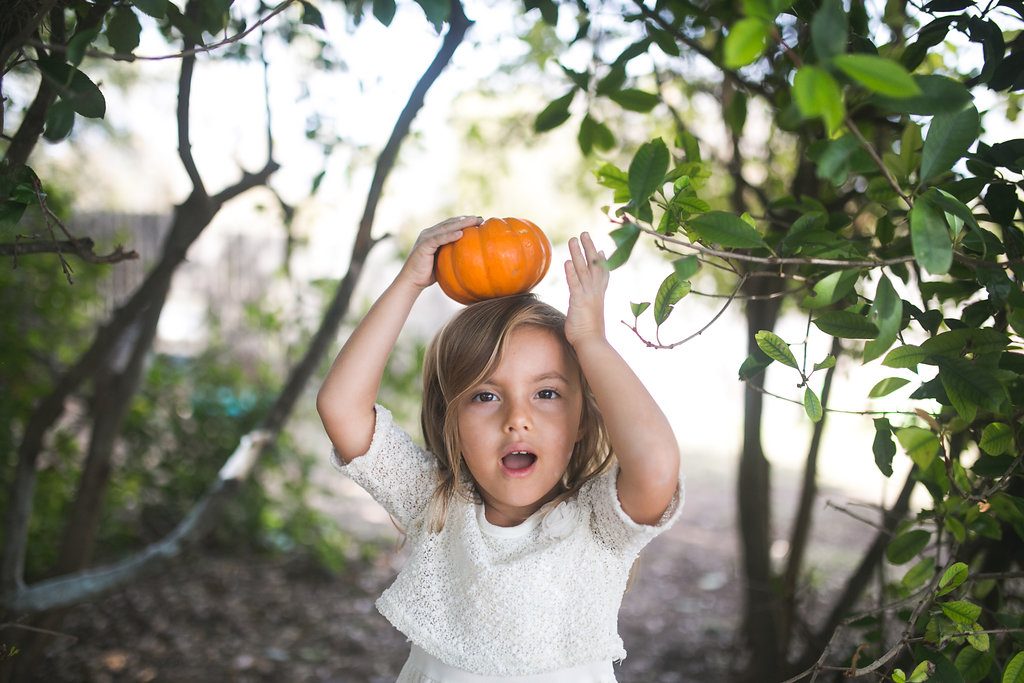Dragonflies | Ages 4 – 5yo
Each 4-4.5-year-old child enters the Dragonfly Classroom at an important and exciting stage of personal development. It is a time when children are becoming more independent and nurturing their natural, creative enthusiasm for learning while rapidly developing skills in social relations, communication, literacy, numeracy, and fine and gross motor skills. Our students in this transitional K class are excited to spend their time learning outdoors (in Collaboration with UT Austin for our Science Creek Lessons, or our Educational Garden spaces), and feel inspired by our Lead Teacher Karina Ortega, to learn the skills necessary for our Kindergarten – Grade 1 Class.
As a Reggio inspired, progressive school that promotes Holistic beliefs and values, WG has adopted the Reggio Emilia approach to enable early learners to reach their individual potential in all areas of development. The Reggio Emilia approach to early childhood education is based on the principle that children should be given opportunities to collaborate with teachers and peers to “co-construct” their learning through the experiences of touching, moving, listening, seeing, and hearing. These learning relationships are of central importance to the development and learning of the student. While we follow this enriching Philosophy, our Students all have a incoming and mid-year Assessments with Individual Learning plans and portfolios, to show their development and milestones.
This co-constructive approach to early childhood learning fully involves teachers in supporting the varied interests of students and allows them to be able to respond to spontaneous learning moments. Through co-constructive learning, teachers can support the development of cognitive skills in all students, helping to build self-esteem and setting them on a path towards becoming independent, life-long learners. By observing students closely, teachers are empowered to make decision that guide the next steps in each child’s learning and, in so doing, establish a collaborative partnership with the child.
The Reggio approach is based on the belief that children have many languages through which they speak – the spoken language being only one of the ways children express themselves. Consequently the learning environment – and everything in it – becomes important additional “teachers” for students. The indoor and outdoor classroom environment assumes huge significance in a Reggio program and WG is proud of a safe and comforting environment in which each student is respected and their beliefs are valued. A wide range of defined areas – both inside and outside – are designed to inspire children to explore with imaginative play, art, construction, reading, writing, science, and technology.
The student is encouraged to see him or herself as an important member of classroom and school community, making choices that will enhance the experience of all students. Students participate in collaborative, experiential, hands-on activities daily.
Documentation of student learning and making learning visible are important benchmarks of a Reggio-inspired program. Similar to the portfolio approach, documentation of children’s work in progress is viewed as an important tool in the learning process for children, teachers and parents. Pictures of children engaged in learning experiences, documentation of their words as they discuss what they are doing, feeling and thinking, and the children’s interpretation of experience through the visual media are displayed as a graphic presentation of the dynamics of learning.
Building a strong connection with parents and our community is integral in our Reggio-inspired classroom. Opportunities for children to extend their inquiry-based explorations to the home are provided. Parents have numerous opportunities throughout the school year to experience their children engaged in Reggio-inspired activities and outside Educators (UT Austin, ACC, Texas State, other) are providing enriching opportunities for youth to grow and flourish into their Kindergarten year.
Dragonfly Daily Schedule
8:30-9:30a Arrival in Garden or on Outdoor Patio with Water/Sensory Play | Garden Activities (or other Offerings)
8:45a Outdoor Circle time in Spanish | Good Morning Songs, Alphabet Songs, Stories, Sharing thoughts of the Morning)
9:00-9:50a Open Centers | Core Lessons (Writing, Reading, Journaling, Math, Social Studies) ~ Outdoors/Indoors
9:50a-10a Clean Up
10a-10:15a Circle Time (English)
10:15-10:30a Transition to Snack (Toileting, Hand washing)
10:30-10:45a AM Snack
10:45a-11:50a Monday: Science at the Creek (Wildlife, Tracking, Foraging, Plant Exploration); Tue/Wed/Thu: Outdoor Exploration (Building | Tinkering), Friday: Bike Club AM, Gardening Nutrition, Health PM.
11:50a-12n Transition to Lunch (Toileting, Hand washing)
12-12:30p Healthy Organic Lunch (outside)
12:30-12:45p Transition
12:45-1:15p Meditation | Mindfulness | Yoga | Read Aloud
1:15-2:45p Monday/Friday: Rest | Quiet Activities (1.5hrs w/ transitional time before + after); Tuesday/Wednesday/Thursday: Garden Science | Botany | Ecology (30 mins) then Rest | Quiet time
2:45-3:15p Mo-Thursday’s: Transition from Quiet/Resting Time; Fridays: Art Therapy
3:15-3:30p Mo-Thursday’s: Snack time
3:30-3:45p Mo-Thursdays: Spanish music and movement
3:45p Closing Circle | Open Centers inside or P.E. Outside on the Patio/Grounds (Pick-up time by 4:30p).
We include organic [or local, whenever possible] lunches and snacks and are able to accommodate most diet-plans and allergies.

